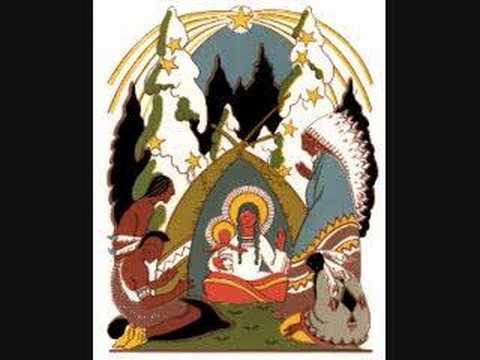None of us will ever know the fullness of our impact on the lives of others. Similarly, it would be impossible for any one of us to trace all the ways that other people have transformed us. Lives may be lived in eras, but are experienced one at a time.
There is much to say, both positive and negative, about the arrival of French Jesuit Missionaries to New France (now Canada) in the 17th century, and about the impact these well-intentioned Europeans had on the lives of the First Nations peoples they encountered there.
One of these missionaries was Fr. Jean de Brébeuf, Society of Jesus. He lived most of his life and ministry with the Huron people. Fr. Brébeuf insisted that mastering the Huron language and understanding their spirituality was necessary before attempting to communicate the particularities of his own religion. It was the work of a lifetime, work that not even the most extensive Jesuit education could prepare him for. It required living closely with people whose way of life was wholly different from his own. It required developing deep trust, mutuality, and close listening.
One of the most powerful ways of communicating abstract concepts like faith is through song. Fr. Brébeuf wrote this Christmas carol while recovering from a broken collar bone in 1642, using the language of the Huron/Wendat people. He set his text to a modified version of a well-known French tune, “Une Jeune Pucelle”, and offered the carol as a gift to the people he lived with and served for so many years.
The Aeolian melody he derived has a limited tonal range, making it accessible to many kinds of voices as well as to instruments such as wood flutes. The hymn has been translated into French and English. There are several translations of the Huron/Wendat text in English, including the 1928 poetic version by Jesse Edgar Middleton included in several English language hymnals. Although this more literal translation is not very poetic, it helps me understand and appreciate how Fr. Brébeuf fashioned this haunting carol. Celtic singer Heather Dale’s performance uses Huron/Wendat, French, and English in a way I find particularly affecting.
Brébeuf’s lyrics harmonize the universality of Christian theology with the particularity of the people he loved and served. The song survived long after Fr. Brébeuf and the Huron people he lived with. In 1649 Fr. Brébeuf, along with a French colleague and several Huron converts, was tortured and massacred by Iroquois. He was canonized as a saint in 1930.
“The Huron Carol”, by Fr. Jean de Brébeuf, SJ, performance by Heather Dale
Have courage, you who are humans; Jesus, he is born
Behold, the spirit who had us as prisoners has fled
Do not listen to it, as it corrupts the spirits of our minds
Jesus, he is born
They are spirits, sky people, coming with a message for us
They are coming to say, “Rejoice (Be on top of life)”
Marie, she has just given birth. Rejoice”
Jesus, he is born
Three have left for such, those who are elders
Tichion, a star that has just appeared on the horizon leads them there
He will seize the path, he who leads them there
Jesus, he is born
As they arrived there, where he was born, Jesus
the star was at the point of stopping, not far past it
Having found someone for them, he says, “Come here!”
Jesus, he is born
Behold, they have arrived there and have seen Jesus,
They praised (made a name) many times, saying “Hurray, he is good in nature”
They greeted him with reverence (greased his scalp many times), saying ‘Hurray’
Jesus, he is born
“We will give to him praise for his name,
Let us show reverence for him as he comes to be compassionate to us.
It is providential that you love us and wish, ‘I should adopt them.'”
Jesus, he is born.



0 Comments